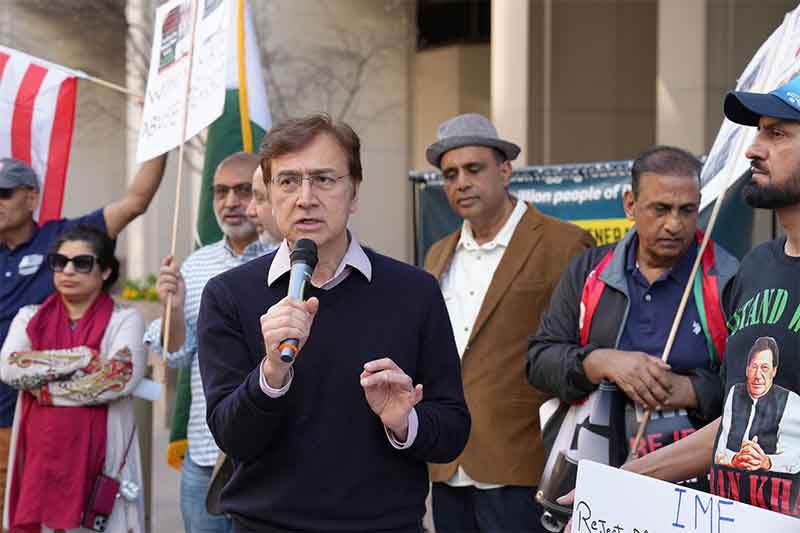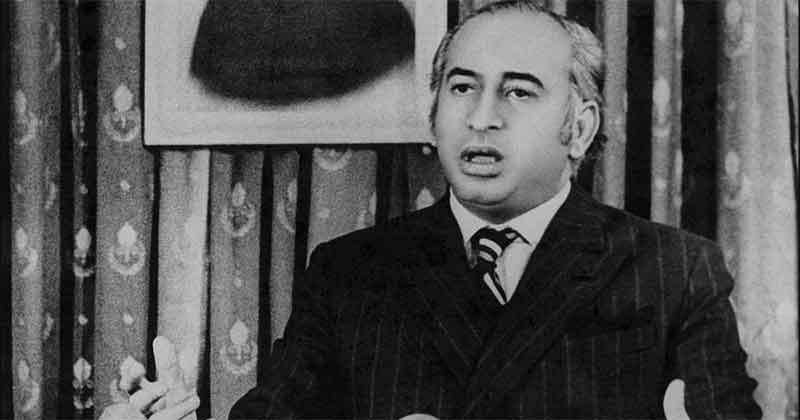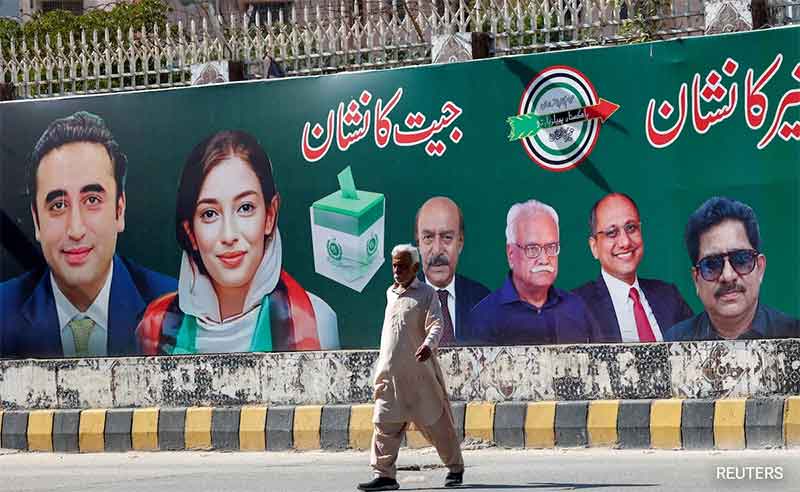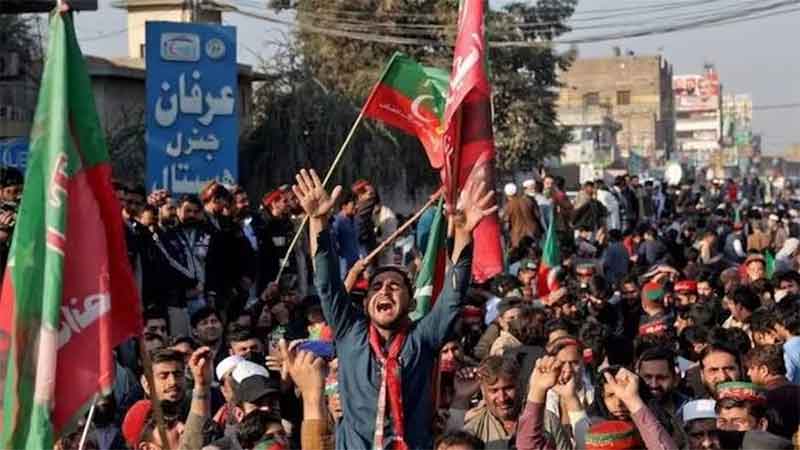
The famous quote by Karl Marx, which has endured throughout history, serves as a constant reminder that history is cyclical and frequently proceeds in a tragicomic rhythm in which serious moments are interspersed with absurd ones.
The ongoing theme of security apparatus manipulation has marred Pakistan’s democratic fabric throughout the country’s turbulent electoral drama. The narrative is bleak, tainted by decades of electoral malpractice, and the state’s democratic hopes are long-shadowed by the threat of military dominance. The threat of electoral manipulation was present from Pakistan’s founding, fueled by the fear of East Pakistan’s numerical superiority. All appearances of democratic continuity have been destroyed in Pakistan, as the threat of military intervention has lingered despite nominal shifts to civilian rule. Meanwhile, Pakistan is stuck in the backwaters of regional progress due to a combination of security issues and economic hardships. The country, beset by inflationary pressures and slowing growth, is also battling an emerging insurgency originating from its unstable western frontier. There is a clear irony here as Pakistan is falling behind Bangladesh, which used to be the leader of the subcontinent’s economic development and is now surpassing its former Western sibling.
Unfortunately, Pakistan’s political future is bleak due to the military’s pervasive influence, which has been consolidated to an unprecedented degree in recent years. Allegations of interference and authoritarian overreach highlight the complex dance between civilian governance and military hegemony, which Khan’s turbulent tenure exemplifies. A delicate tightrope walks between civilian authority and military prerogatives, with potentially dangerous consequences for democratic governance, is being created as the military’s influence on economic policymaking becomes gradually permanent. Then, the sudden ascent and descent of Khan embodies the erratic character of Pakistan’s political environment, in which friends can turn into enemies in an instant. The volatile past that characterizes their relationship notwithstanding, the military’s erratic support, which was previously bestowed upon Khan, now finds sanctuary under the experienced guidance of Sharif. Nevertheless, the menacing shadow of earlier strife hangs over Pakistan, ready to draw the country into yet another political whirlwind and jeopardize its delicate economic recovery.
For the time being, Pakistan is on the verge of a post-election crisis following the nationwide mobile shutdown, which was purportedly implemented to suppress unrest but unintentionally caused result delays. Managing coalitions in Pakistani politics is like navigating a maze full of obstacles; it is easily divided and manipulated. It is a mistake to try to apply a one-size-fits-all approach to Pakistani democracy because of its distinct military-centric power dynamics, in which generals have significant influence over the electoral process. Recently, the PTI under Imran Khan appeared to be moving away from military intervention after winning an election with the support of sympathetic voters. However, during its rule, the party has not implemented significant economic reform, which has made Pakistan’s unstable financial situation worse. Even though the electoral landscape seems to be indicating a seismic shift, the likelihood of a true transformation is doubtful due to the lack of specific structural reforms.
On the other hand, Pakistan presents a dire picture of its current situation as it battles rising inflation, energy shortages, and a precarious reliance on foreign financial aid to avert economic collapse. In addition to endangering economic prosperity, the growing threat of poverty exacerbates gaps in healthcare, education, and human advancement. This emphasizes how urgent it is to implement long-term policy frameworks that attempt to reduce poverty while also addressing fundamental structural barriers. Thus, in the maze of Pakistan’s many problems, it becomes necessary to disentangle the complex web of the military-led establishment’s control over the country’s political landscape. Growing public dissatisfaction with alleged military maneuvers has led to large-scale demonstrations, which have been met with oppressive responses from the establishment. Military rule has been implemented in Pakistan on occasion, more recently, a gradual shift toward a quasi-democratic system has taken place. However, the military’s lasting legacy persists, leading to investigations into hidden plans and occult dealings. Thence, in order to prevent further strife, there is an increasing need for substantive reform as the country struggles with socioeconomic privation.
Lastly, one often-stated covert goal is the military-led establishment’s relentless pursuit of hegemony over foreign policy and national security, particularly with regard to neighboring countries. There have been worries raised about the potential erosion of democratic values due to the military’s alleged involvement in elections and government, as well as its involvement in internal politics. These secret plans hint at a precarious balance between civilian governance and military control, which is a perilous feature of Pakistan’s political landscape, even though the military has declared its commitment to democracy. These issues must be resolved in order to create an accountable and transparent political culture in Pakistan and pave the way for stable governance and the mitigation of upcoming challenges.
Nadir Ali holds a bachelor’s degree in Strategic and Nuclear Studies from the National Defense University, Islamabad, Pakistan. He has written for Modern Diplomacy, Pakistan Observer, Pakistan Today, and numerous other publishers. He tweets at @hafiznadirali7 and can be reached at [email protected]














































